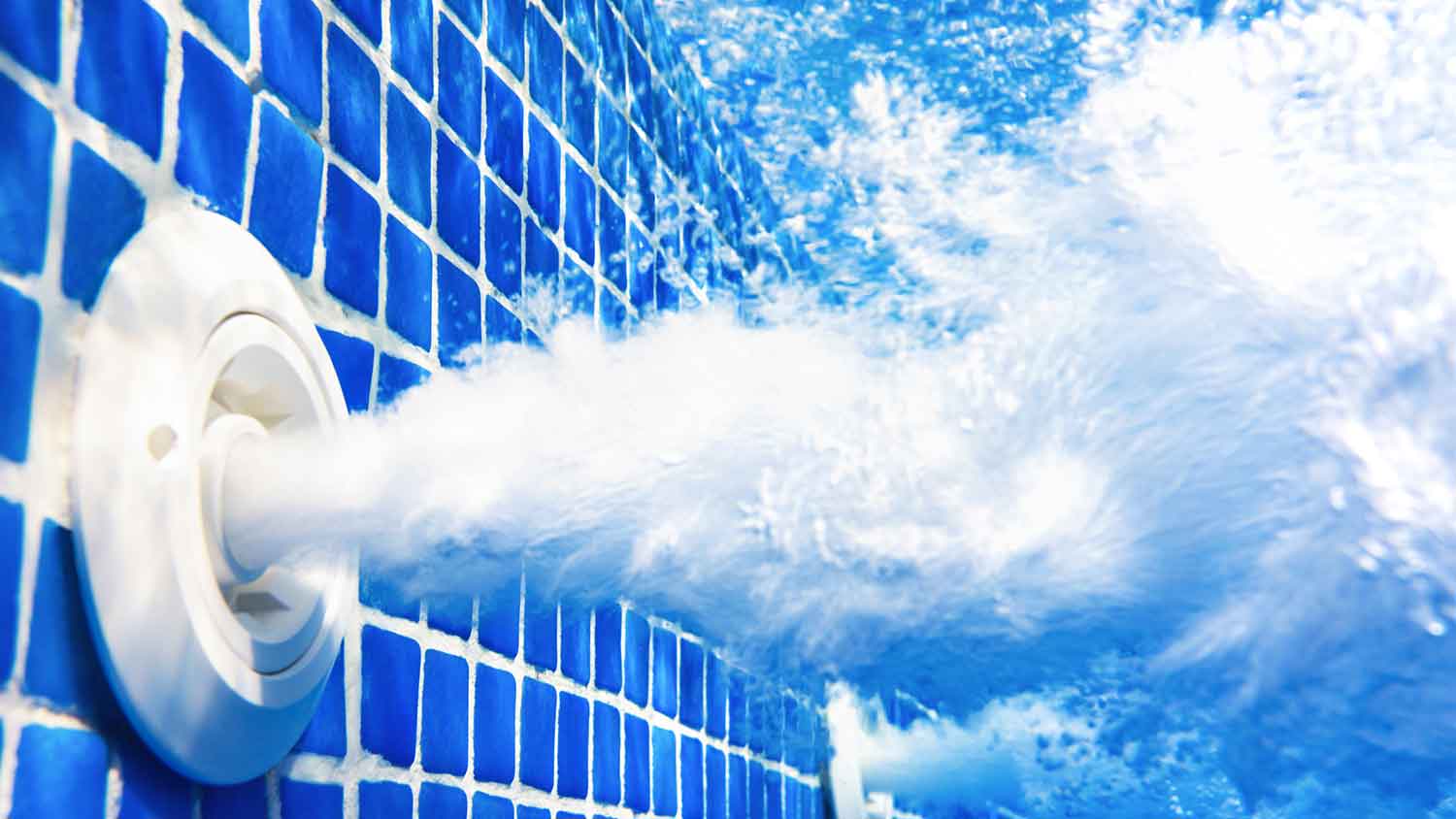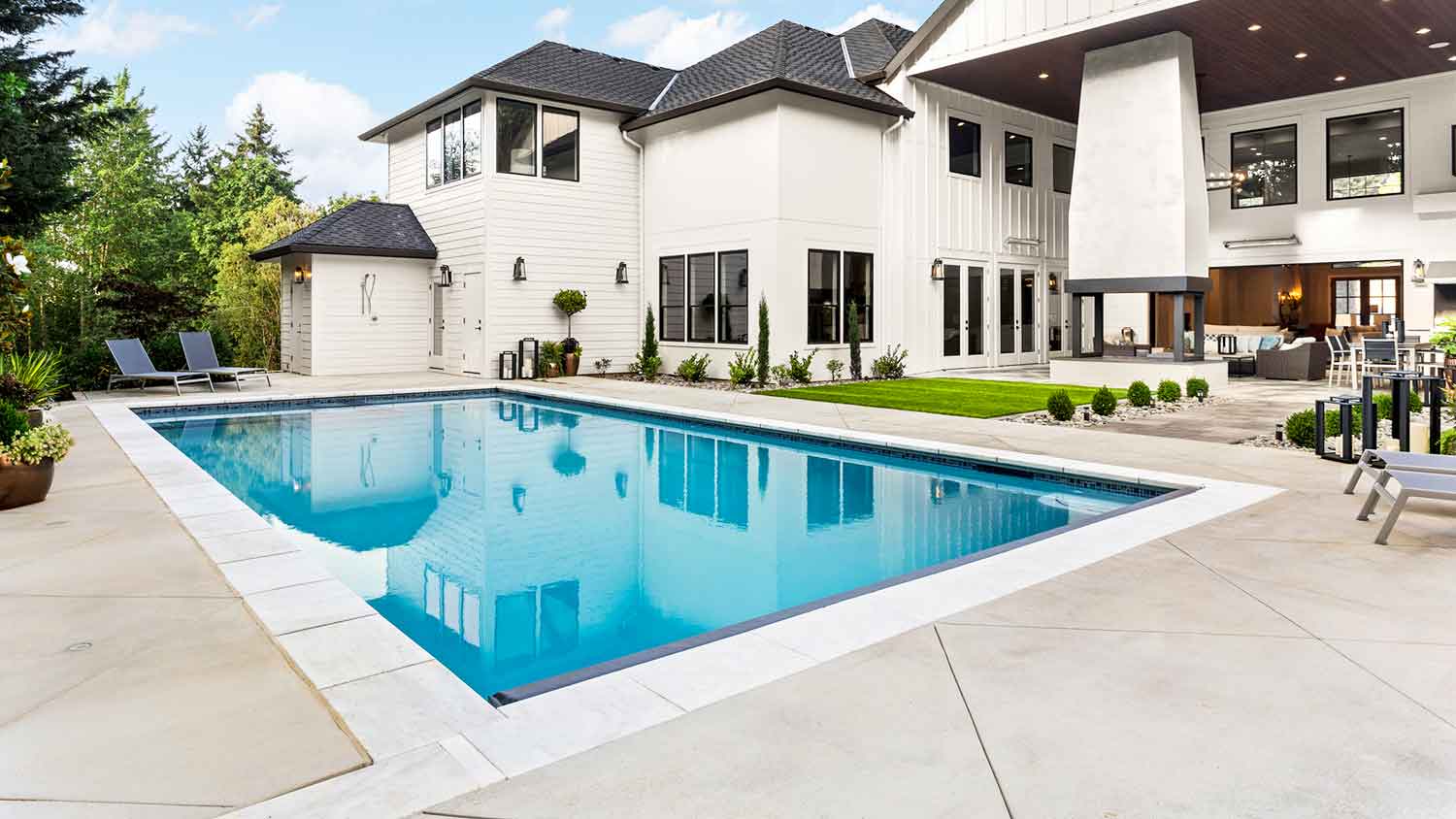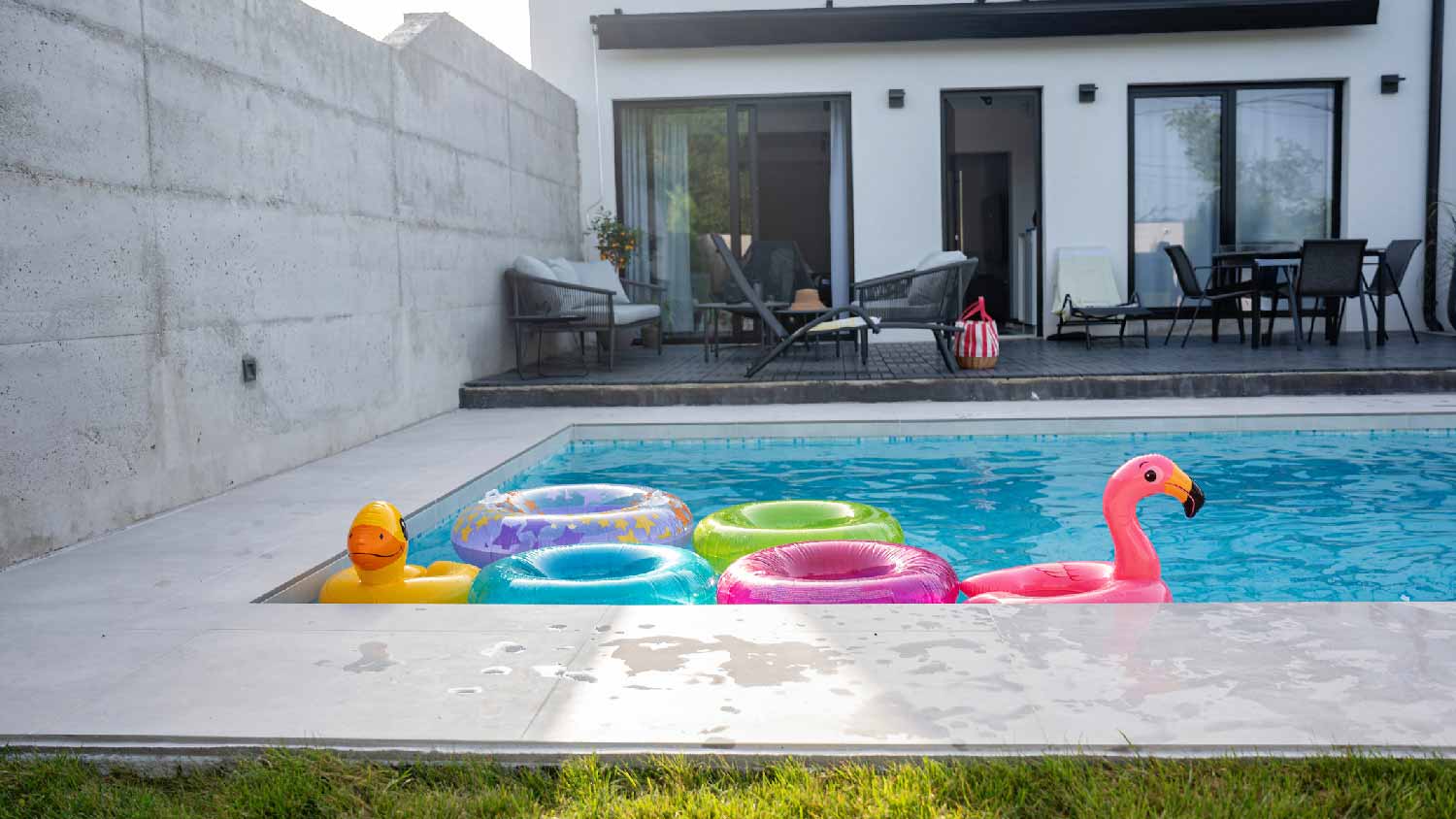Why Is My Pool Cloudy? 6 Reasons Why
What lies beneath that murky water
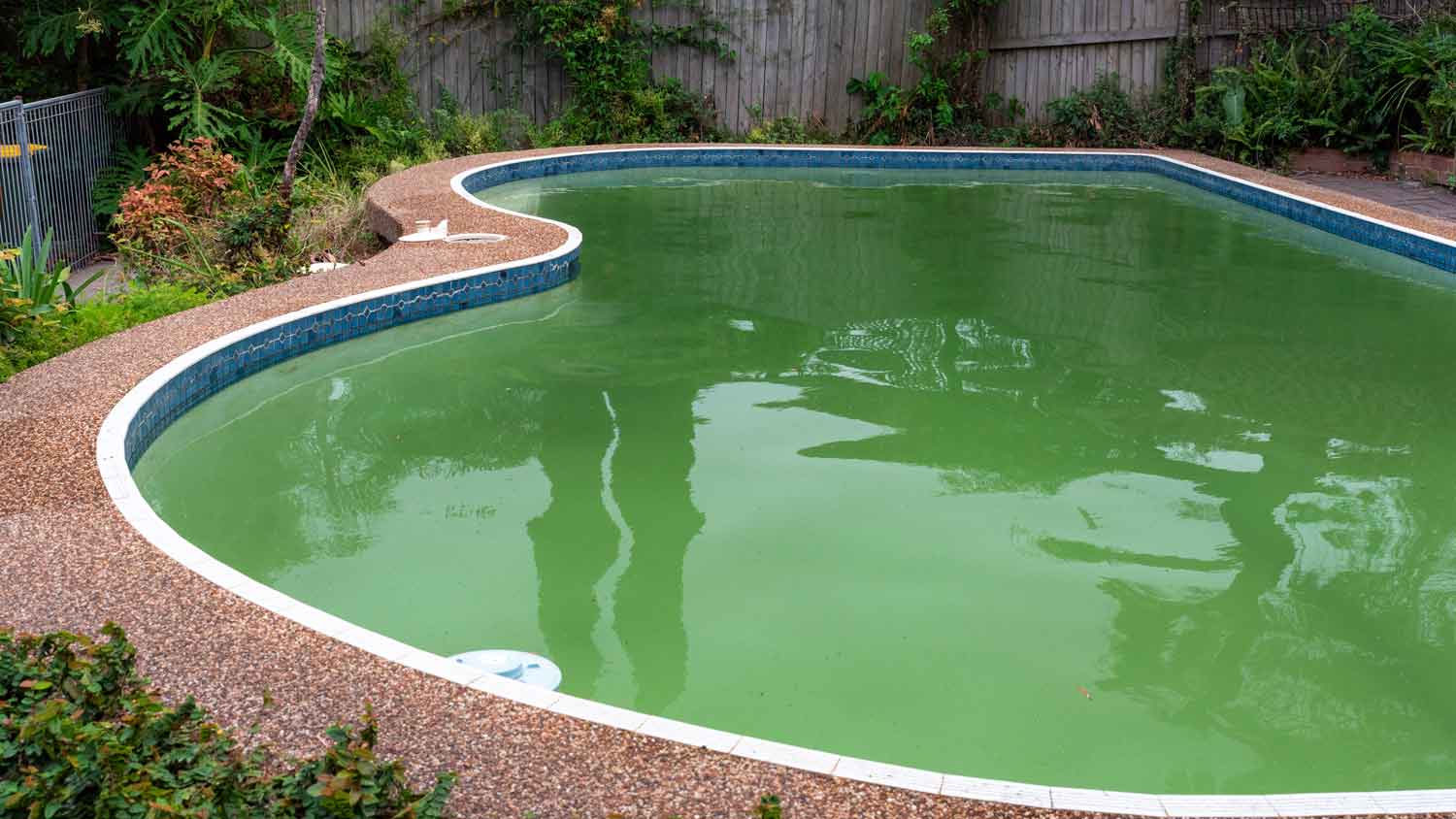

Not running a pool pump for eight to 12 hours daily is the most common cause of a cloudy pool.
Testing water for chemical and pH balance helps prevent imbalances and cloudiness.
Hire a pro to handle filter issues.
You don your bathing suit and head to your pool for some much-needed summer lounging, only to find cloudy water that creates more stress than relaxation. A few things can cause a cloudy pool, ranging from algae growth to pump problems. You’ll want to diagnose the problem as soon as possible, which will potentially save you money on labor costs.
1. Pump Problems

Pool pumps help circulate pool water so that chemicals mix properly and so that all of the water passes through the filter. An issue with the pump can lead to cloudy water. If you don’t hear your pump turning on when it should or the water pressure from the jets is lower than usual, a pump issue could be the culprit.
The Solution
Make sure your pump is set to run at least eight hours a day. If you live in an area where there’s excessive tree debris or pollen, consider increasing that to 12 hours a day. If your pump isn’t working at all, cycles on and off, or seems to create low pressure from the jets, call a local pool repair company to fix the issue.
2. Filter Issues
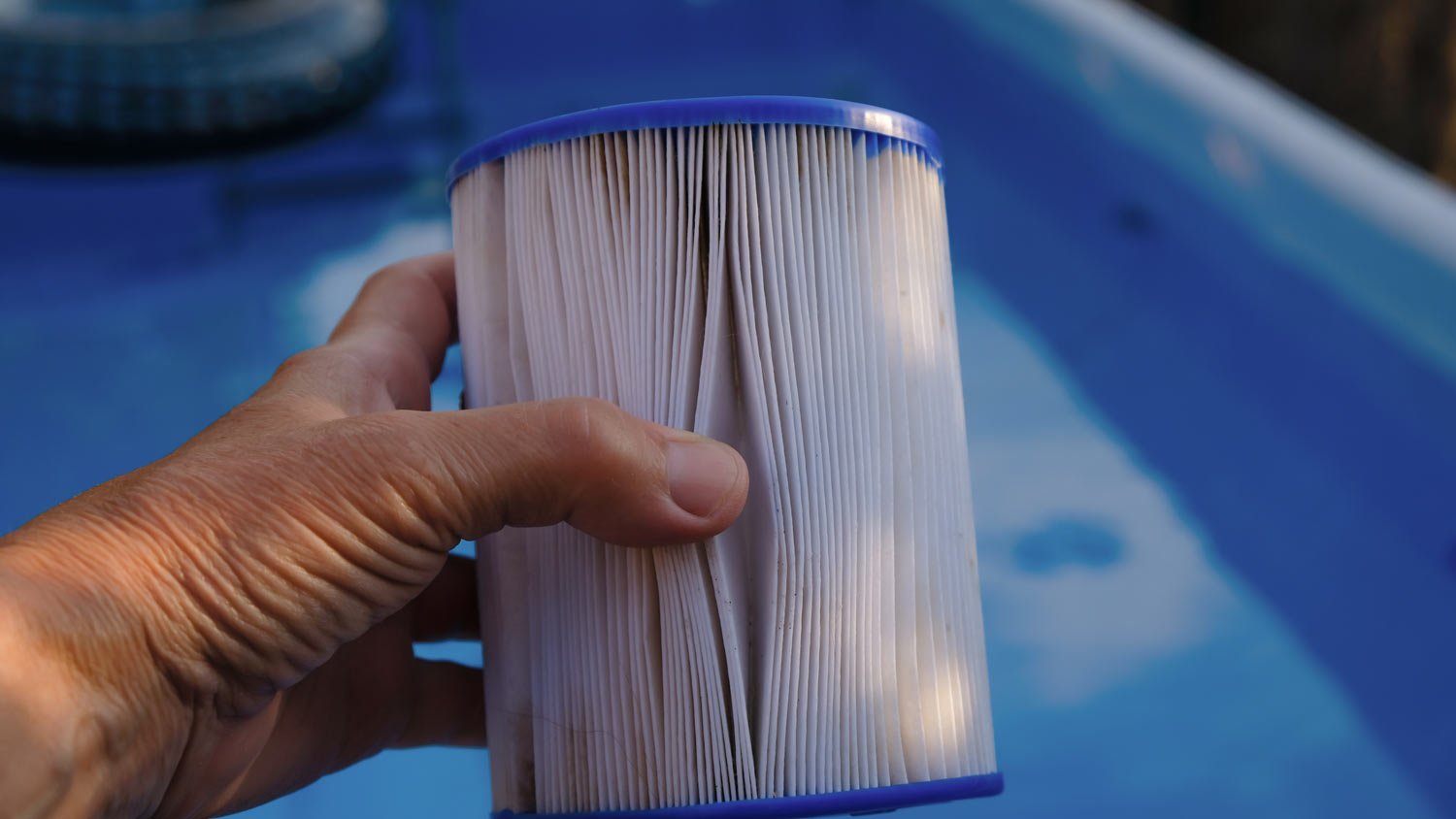
Even a properly working pump could have trouble if the filter that the water passes through is damaged or clogged. The side effect: cloudy pool water. Filter issues include a clogged filter, an improperly sized filter, or a diatomaceous earth (DE) or sand filter leaking small particles into your water.
The Solution
Start by cleaning your pool filter. If that doesn’t solve the issue within 24 hours, call a professional. Filter issues can be complicated to diagnose since so many things can go wrong, so if it’s not a simple fix.
3. Chemical Imbalances
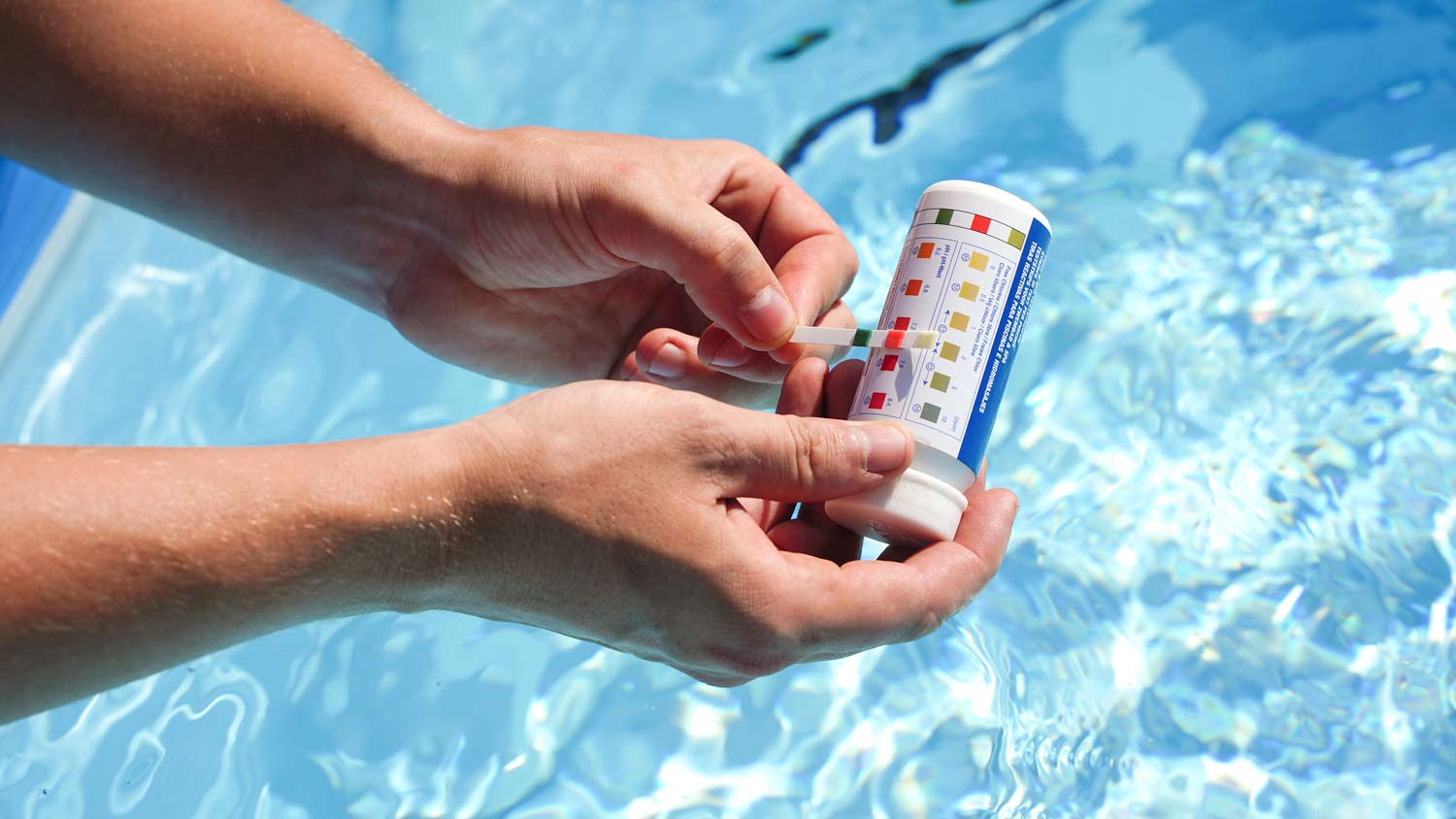
Chemical imbalances can lead to cloudy pool water, including low free chlorine levels, high calcium levels from hard water, and low chlorine stabilizer levels. Additionally, a high concentration of shock chemicals immediately after a shock will cause cloudiness.
The Solution
Use a high-quality pool test kit to identify the levels of chemicals used in your pool. These can vary based on your water and filter type. Add chemicals to bring things back into balance to clear your water, and maintain those levels to avoid cloudiness from returning. You can also hire a pool care company for routine maintenance.
4. Wrong pH
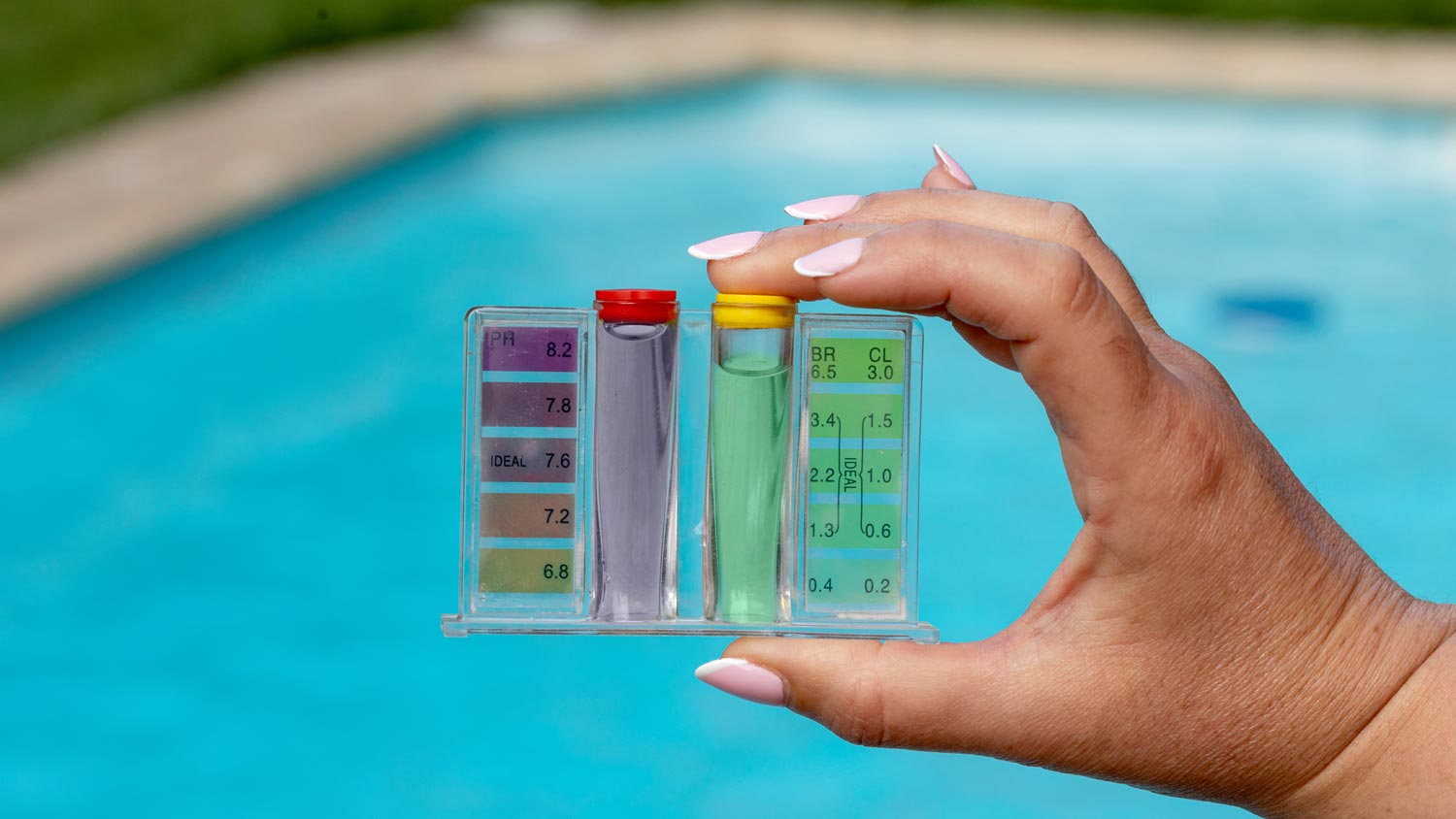
Most pools should have a slightly basic pH of 7.2 to 7.6. A pH outside of this range won’t be the cause of your problem, but it could indicate the underlying issue. A high pH usually means a calcium issue, while a low pH could indicate a low concentration of free chlorine.
The Solution
Test your pool’s pH using a pool test kit, and use pH Up or pH Down to bring your water back into balance. Make sure you treat the underlying problem, too, either by adding chlorine or adding flocculant and then vacuuming out the calcium deposits.
5. Debris
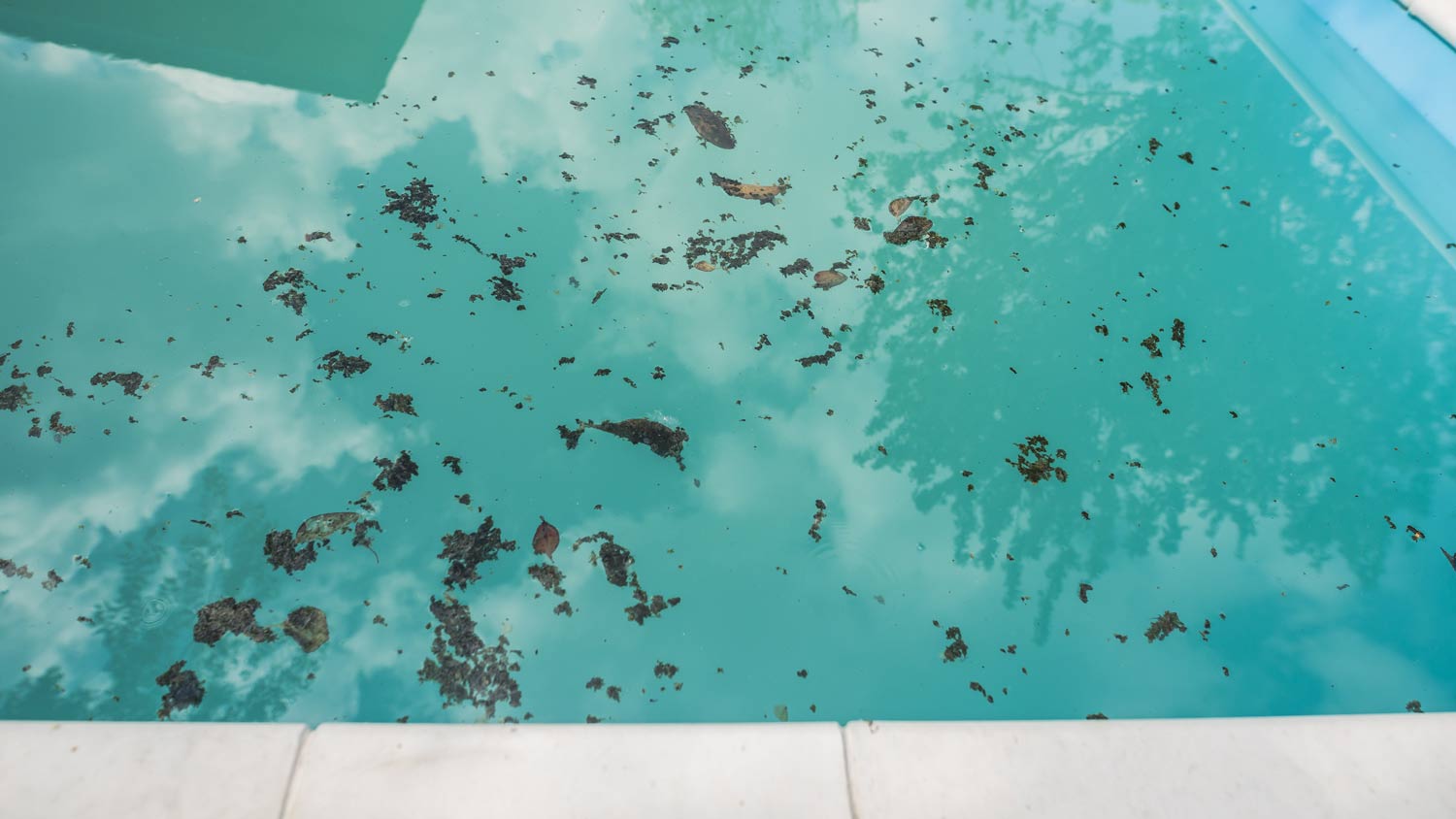
Dirt, sand, pollen, and tree debris can all make your water appear cloudy. That’s because they can reduce the amount of free chlorine in your water and due to visible particles. Even too much sunscreen can interfere with the clarity of your pool water.
The Solution
Skim your pool daily to remove debris, and consider using a pool cover to keep errant pieces out of the water. Make sure you bathe before entering your pool as well.
6. Algae
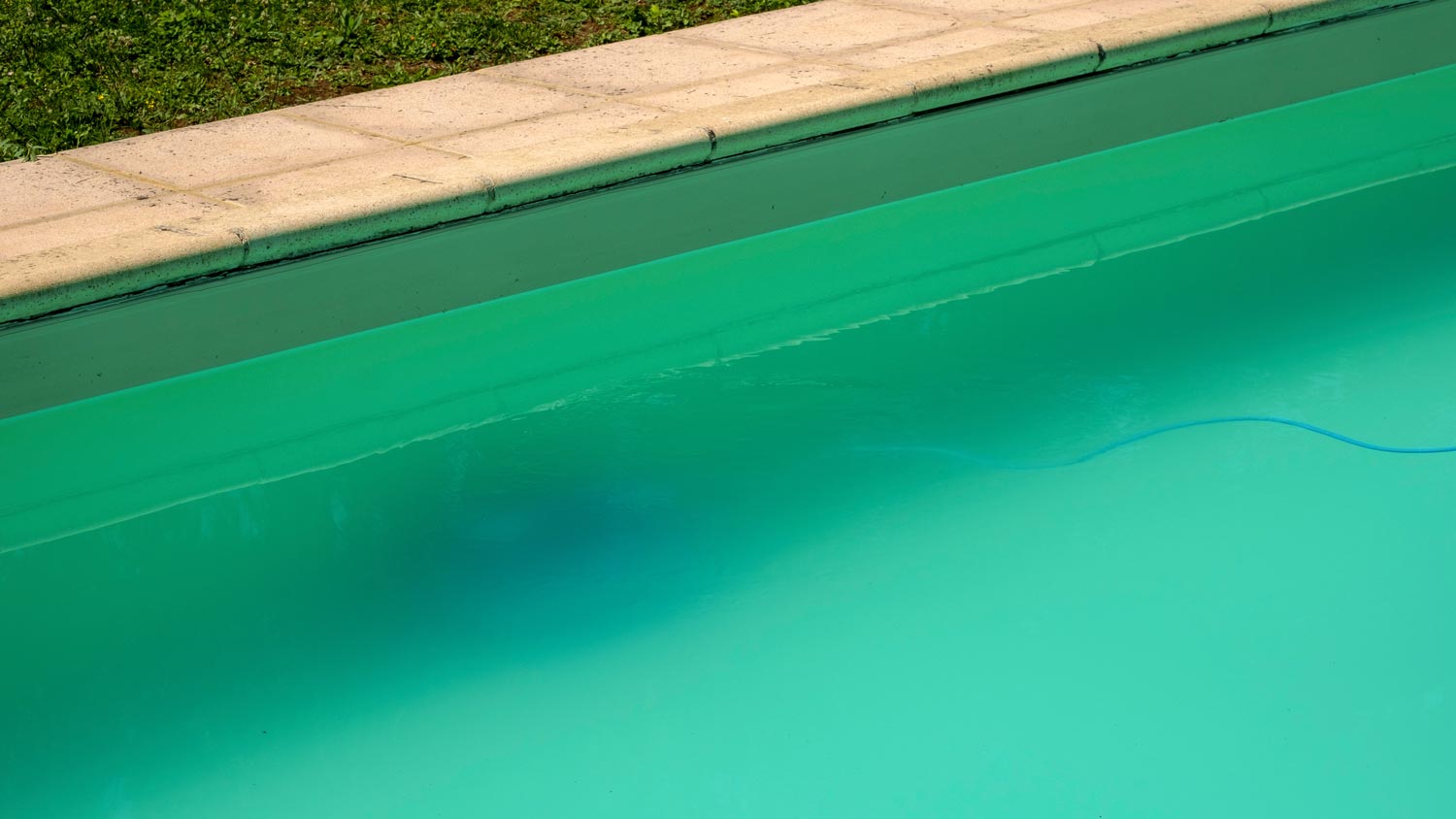
Algae—aquatic, photosynthetic organisms—are a possible threat to clear pools, especially in warmer climates. If your pool water is cloudy and has a greenish tinge, algae growth could be to blame.
The Solution
Test your pool water and make additions to balance chemicals and pH. This can solve minor problems with algae, but you may need to add an algaecide to treat more severe issues.
When to Call a Pro
Luckily, most issues that cause a cloudy pool involve solutions that are easy to DIY. If you have a pool test kit and the necessary chemicals on hand, you can handle imbalances and treat the problem yourself. If you’re struggling with keeping your pool water clear, though, or you believe the issue is with the pool equipment, call a professional pool repair company near you to take a look.
Frequently Asked Questions
Shock can clear a cloudy pool if the problem is insufficient free chlorine or an accumulation of chloramines from “spent” chlorine. However, it can make the issue worse if a high level of chlorine or a pH imbalance is the root cause of the problem. Test your pool water before treating the cloudiness to ensure you’re making the right call.
Yes, too much chlorine can make your pool cloudy, especially if you recently shocked your pool. However, a low chlorine level is the more common cause of cloudy pool water. Test your pool water to see if the chlorine level is high or low, and check other chemicals and pH as well. Knowing the levels in your water can help you determine why your pool is cloudy and what you can do about it.



